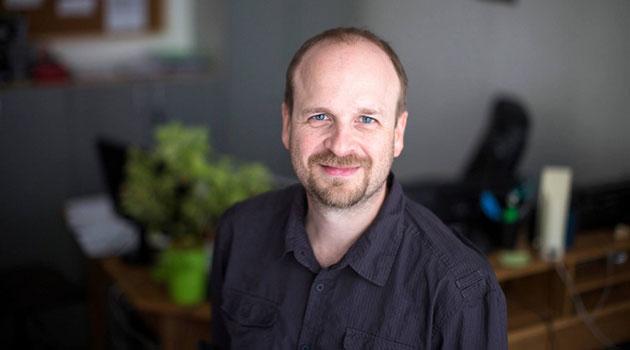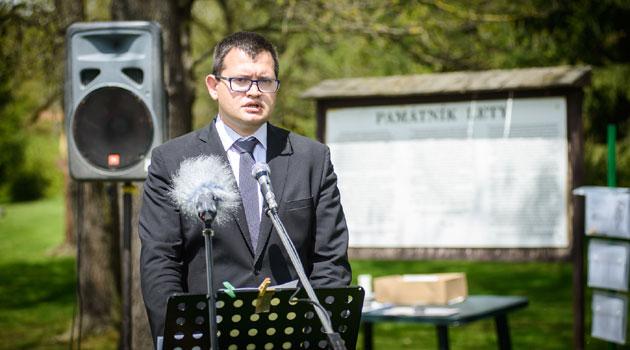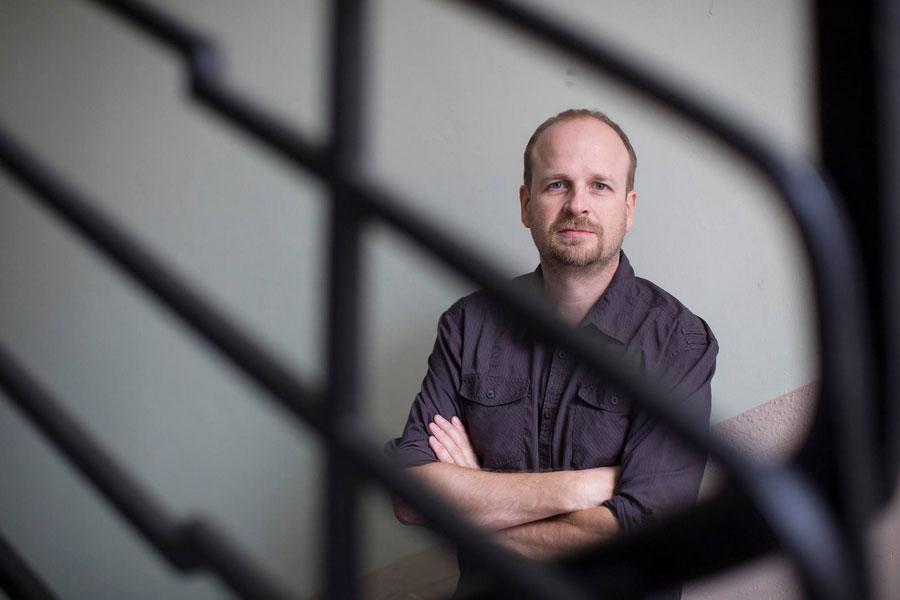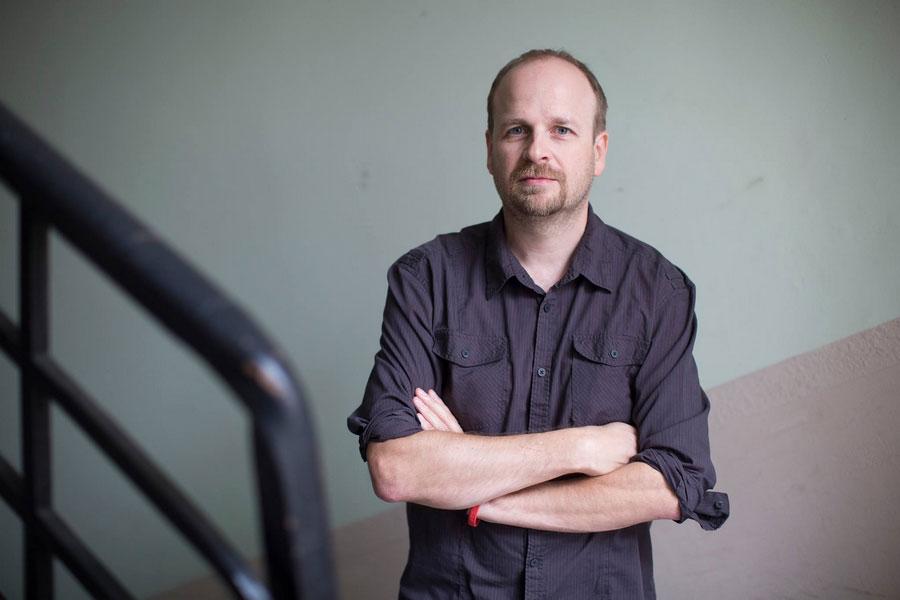Czech Republic: Head of ROMEA receiving threats against his family, antigypsyism on the rise

According to Zdeněk Ryšavý, director of the Romani media agency ROMEA in the Czech Republic, hate speech against Romani people is reviving after a brief lull and is even more intensive than it was before. He also believes that the boundaries are being pushed in terms of the content of such hate speech and tolerance for it.
“We must recall that [DSSS chair] Tomáš Vandas and his fellow party members were convicted in 2010 for saying that a ‘destructive immigrant tsunami wave’ awaited us. Similar remarks were made in 2015 by [Czech President] Miloš Zeman,” the director says in an interview for the Hate Free Culture website which is reproduced below in full translation.
“The question is, therefore, whether law enforcement giving up on punishing the dissemination of verbal hatred has caused the fact that today such verbal assaults are much worse, whether against refugees or against Romani people. The laws have not been adjusted in the interim,” he says.
Hate Free Culture asked the director whether he believes hate speech should be prosecuted, whether Romani people are also racist, and whether it is discriminatory to offer scholarships for Romani students. The necessity of publishing periodicals about and for Romani people was also discussed.
Q: Sometimes we hear it alleged that hatred against Romani people has declined here in connection with the refugee crisis, because people are more burned up about refugees or Muslims. Do you have that feeling also?
A: That was true when the so-called refugee crisis was happening. It is a fact that the year 2015 was one in which the topic of Romani people basically disappeared from the Czech media. It was replaced by the topic of refugees and essentially any stupid thing associated with them was addressed. In mid-2016 the Czech media began to return to Romani people as a topic, must frequently because they were reporting on politicians. This can be seen on the websites that were previously publishing hateful articles against refugees – they are now dealing with Romani subject matter again. For example, on the Parlamentní Listy website there are many anti-Romani articles created by politicians making such remarks. Some politicians keep this subject alive because there are no refugees here to hate. In my opinion this atmosphere is returning with double the intensity, by which I mean that the remarks are much worse than two or three years ago.
Q: How do you explain that?
A: The anti-refugee remarks gained strength gradually. They were not just said by the media and politicians we were accustomed to hearing them from, but by others from whom such language had never been heard before. On top of that, the Czech President shared a stage with [anti-Islam activist] Martin Konvička. I think some people got the feeling that it’s normal to say such things, and now they have fluently continued this trend with Romani people as the target. We must recall that [DSSS chair] Tomáš Vandas and his fellow party members were convicted in 2010 for saying that a “destructive immigrant tsunami wave” awaited us. Similar remarks were made in 2015 by [Czech President] Miloš Zeman. The question is, therefore, whether law enforcement giving up on punishing the dissemination of verbal hatred has caused the fact that today such verbal assaults are much worse, whether against refugees or against Romani people. The laws have not been adjusted in the interim, they are the same, but in 2010 somebody was convicted for making such a remark, and today much worse language is getting a pass, so either something was wrong before, or it’s wrong now.
Q: In your view, should so-called hate speech be punished? What do you believe in general about deleting such commentaries from the online environment?
A: That is exactly the question. Was it good then, or is it good now? Each remark must naturally be assessed individually. In my opinion, for example, Vandas should not have been convicted for that specific remark in 2010. If, however, somebody makes a specific threat – for example, to burn down our office – that is absolutely something else. We have filed 11 criminal reports, for example, about online commentaries where somebody was actually threatening to either kill somebody else or to assault them somehow. Nothing happened. According to the state prosecutor, that speech was neither a felony nor a misdemeanor. For some cases that received more media coverage it’s different – for example, the hateful spray-painting of those places associated with the Hate Free Zone network. In many other cases, however, reports of hate speech are swept under the carpet. The question, naturally, is how to eventualy punish such behavior. I think that for some remarks it’s absolutely enough for the police to begin investigating – that way those who write such things will find out that it is not possible to break certain rules, not even on the Internet. I believe such investigations would have an educational effect on those people.
Q: Isn’t that censorship?
A: There are laws that are supposed to apply here. If you walk into a pub and begin shouting “I will kill you all!”, then somebody will probably call the police and it will be addressed somehow. It will not occur to anybody to debate freedom of speech. It is the same on Facebook. By threatening somebody, you are restricting that person’s freedom. That person may be in fear of his life, those threats can have psychological consequences for him. He might be afraid to walk down the street, he might be afraid for his family.
Q: In the online discussions of the Hate Free Culture Facebook page the opinion is frequently expressed that Romani people post racist commentaries on the ROMEA Facebook page against non-Roma and that those are never dealt with, unlike when non-Roma post racist commentaries about Roma. Is that so?
A: Naturally we encounter that. It’s normal for a certain percentage of racists to exist in any community – people who don’t like Czechs, for example. We can discuss the reasons for that. It might be, for example, a defense mechanism, because here in the Czech Republic, according to polls, as many as 80 % of those surveyed do not like Romani people and let them know it. It’s also interesting to follow how such commentaries come about. Very frequently such comments are reactions to negative behavior targeting Romani people – if, for example, we have an article reporting that a non-Romani person did not let a Romani person into a business, for example, or assaulted a Romani person, or refused to rent to a Romani person because of their origin – then such commentaries show up there. We are against all racism. It’s all the same to us if a commentary like that is written by a non-Rom or a Rom. We do our best to delete all racist commentaries. Very often they are also exaggerated reactions to a previous racist commentary against Romani people. The provocateurs then take screenshots of the racist commentaries posted by Romani Facebook users who are reacting to the provocation and those screenshots make the rounds on the Internet – without including the material they were responding to.
Q: What do you do with such commentaries?
A: We do our best to delete all racist posts, but the question is whether we are succeeding. Beneath some posts, such as, for example, our live online broadcast from the demonstration in Žatec last year [protesting police failure to investigate the death of a Romani man], there are thousands of commentaries posted. We are simply not able to read them all and delete the racist ones. Facebook does not have an administratively user-friendly approach to such cases so that one might be able to go through the material systematically. On the other hand, the primary responsiblity for what appears on Facebook is borne by Facebook. ROMEA is responsible for what appears on the Romea.cz news server, and there we are capable of monitoring the discussion.
Q: You mentioned that racist posts by Romani people might be a reaction to a certain racism expressed against Romani people, to wrongs committed against them. Isn’t it, therefore, possible to view the racism committed by the majority against Roma as motivated in the same way? Isn’t that also a reaction to certain behavior by some Romani people?
A: I would just like to emphasize that I am decidedly not excusing racist behavior by anybody. Racism committed by somebody from the majority society towards Romani people can certainly be a reaction to some personal experience. On the other hand, a big role is played by the media – many people here have no personal experience with Roma and get their opinions about them from the media. If you look at the trends over time on how Czechs perceive their co-existence with Romani people, you can see that a certain group of people decide that issue exactly according to how Romani people are being written about by the media at that time. When the media stopped writing about Roma during the so-called refugee crisis, then Romani people rose in the public “esteem”, because the number of people who perceived coexistence with the Roma as negative fell. From the CVVM polls it can basically be seen that non-Roma who actually have experience of Romani people assess coexistence with them better than those who do not. Racism can have many reasons – personal experiences, stories told to us by our friends, or what is written in the newspapers.
Q: How do you respond to that?
A: We are doing our best to support young Romani men and women in achieving an education. We have a scholarship program targeted directly at Romani people because discrimination against them in their access to education objectively exists here. It’s just like the discrimination, for example, against single mothers of young children on the labor market. Somebody has to step up to support that group, and single mothers are a supported group here. We esepcially support Romani youth with their studies, because in our opinion one of the ways to respond to this is exactly that, education. If Romani people are educated, they will lead the next generation to education. This is not about giving anybody something extra. We are equalizing their starting position.
Q: According to you, then, this is not discrimination against members of the majority society? Many people might feel that it is.
A: If this were discrimination against members of the majority society, that would mean we were committing some kind of wrongdoing against them. Yes, somebody might call this “positive discrimination”, but we are giving somebody a chance here to have the same conditions for study as everybody else. We are not preventing anybody from doing anything, on the contrary. We are doing our best for this group of people to achieve the same position as children from the majority society. This is not just about scholarships. We offer our students tutoring that their parents are very often unable to provide them. Most of their parents just achieved a primary education [through ninth grade]. The students whom we are supporting are often the first in their families to study. It is difficult for a parent with a ninth-grade education to aid them, because the parent just does not have either the knowledge or the finances to pay for tutoring. It’s all to the good if a new Romani generation grows up here for whom education will be normal and who will raise their own children to achieve an education. Where else should that support go?
Q: What if it were the reverse? If the scholarships were just for non-Romani students? Would you see that as discrimination?
A: There are scholarships here for the socially vulnerable. Again, that’s a group who needs to have their chances equalized, unlike those who have the good luck to be born into a family with a good background. Here’s another example: Visually impaired people also are eligible for special support, but that does not discriminae against those whose vision functions.
Q: The ethnic approach might be dubious to some. A person is getting money because he belongs to a certain ethnic group, and if he does not belong to that group, then he does not get anything.
A: We are discussing Romani people here because it is an objective reality that they are discriminated against, and not just in their access to education, but also in their access to employment and housing. We have many cases of Romani students who wanted to work part-time for those world-famous fast food brands in order to make money during their studies, and they were not accepted, allegedly because customers here do not want to be served by somebody Romani. That does not happen to students who are white, they don’t have to go through 10 or 15 rental housing advertisements before finding a landlord willing to rent to them, like a Romani person does, and they don’t pay much higher rents like Romani people do. We are actually talking about a specific group who have a specific problem with discrimination, one that the other socially vulnerable people here do not have. For that reason, we support specific Romani students. We also include exactly that critierion, that they must come from a socially vulnerable family.
Q: Is it necessary for a news server like Romea.cz, one established on an ethnic basis, to exist?
A: The Czech media create a certain image of the Romani minority. In our opinion it is a very distorted image. Romani people are only written about when the majority society has a problem with them. Naturally, the media report on conflicts and problems, that’s logical. We, however, are doing our best to conribute the other perspective. We write about Romani people who have achieved something. We contribute the opinions of Romani people themselves about different issues. The media frequently write about cases of conflict as if they are “Czechs vs. Roma” conflicts. They see it in a terribly black-and-white way. If we recall the example of the incident in Duchcov, many media outlets conveyed an open-and-shut analysis of what happened there: Romani people assaulted a non-Romani couple. That was all, nothing else to discuss. No media drew any distinctions among the Romani people at the scene. Four Romani people did assault that Czech couple – but several other Romani people at the scene did their best to prevent them from doing so! It was not a group of 10 Romani people, all of whom were aggressors, but the media did not capture that information, despite the fact that it is essential. For that reason, we do our best to contribute the perspective of Romani people about such conflicts, so that they themselves say how they have perceived what has happened. Very few other reporters will ask them for their perspective, despite the fact that the incident was about them. Romani people are very often not asked about other matters either, such as, for example, whether taxes here should be lowered or raised – but they deal with those issues too.
Q: How can that be changed?
A: We are doing our best to give Romani people room to express themselves, both as authors of content and as respondents in our reporting. We are also doing our best, through our media courses for young Romani men and women, to train a generation of Romani people who will work in the media. Richard Samko has been working for [public broadcaster] Czech television for many years and today he doesn’t just do Romani subject matter but functions as a “normal” journalist. The same can be said of Tomáš Bystrý at Radiožurnál. Sometimes when a Romani reporter comes to a newsroom the supervisors have a tendency to predominantly given them Romani subject matter to reproort on, but that person might be an expert in something else entirely.
Q: Are these examples of successful Romani people managing, in your view, to shift society’s perspective on Roma?
A: Sometimes the paradox arises that if a Romani person does not correspond to the general ideas about Roma – i.e., he does not live in dilapidated housing, he isn’t dirty, he isn’t on social welfare – then society does not identify him as Romani at all. I have had many experiences of such Romani men and women being considered foreigners by their fellow citizens here. It does not occur to anybody that they might be Romani. We published an interview with the psychologist Andrea Tibenská, for example, and she says that if people encounter her on the street, then they know she is a Romani woman and they behave accordingly, but once they come to her office and see her in that role, it never occurs to any of them that they are visiting a Romani doctor, because they do not anticipate a Romani woman in that role. They ask her whether she is Brazilian, or Greek, and then they are surprised. Such Romani people then very frequently encounter this kind of assertion: “Well, you basically aren’t Romani. You’re not like them.” It is important that those people do declare that they are Romani and that there is a big number of Romani people like them. Naturally, it is comprehensible that nobody can force anybody else to do that – explaining who they are is certainly exhausting for them.
Q: We frequently hear that no small amount of money is supplied by the taxpayers for the operation of Romea.cz. How is it actually financed?
A: News server Romea.cz was created in 2003. In the beginning, sometime in 2005 and 2006, we got about CZK 300 000 [EUR 11 600] twice from the then-Ministry of Information Technology during their distribution of subsidies for Internet projects. For the part of the server specifically about documenting Romani culture and producing videos we still receive a grant from the Culture Ministry of between CZK 100 00 and CZK 200 000 annually. It is a bare minimum of money that has come from the state to this news server over the years. Other financing is coming today from a private foundation in the USA, Bader Philanthropies, and from the German EVZ foundation. It is always very difficult to raise money for the operation of the news server itself. Money can be raised for certain projects that form a kind of superstructure, for example, our media watchdog service or our media courses for students, from which pieces are then produced for the website. We also have some smaller income from advertising, and now we are also launching a campaign asking the public to aid us with small donations. It is necessary to say that national minority publications are supported in the Czech Republic bythe Culture Ministry, but our news server does not apply to that program – our application thre is for our print magazine, Romano voďi. Through that program, however, the Polish minority media outlets receive much more money, which many people are unaware of.
Q: Do you take this hatred against Romani people personally?
A: I’m not Romani, but my girlfriend is, and we have two children together. Basically, this is already very personal for me, because we do sometimes encounter that hatred. Since I have a boy who is six and a half and who is in school now, and who is darker, I am concerned about how he will cope with it. My girlfriend is a trained nurse, she works in that field, and her experience is that people spit on her when she takes the metro. We also had a problem with finding an apartment. Sometimes these things happen to us. In addition, people have threatened to kill my children, but the Czech Police were unable to apprehend the people who made those threats, so they shelved my complaint.
First published on HateFree.cz.


